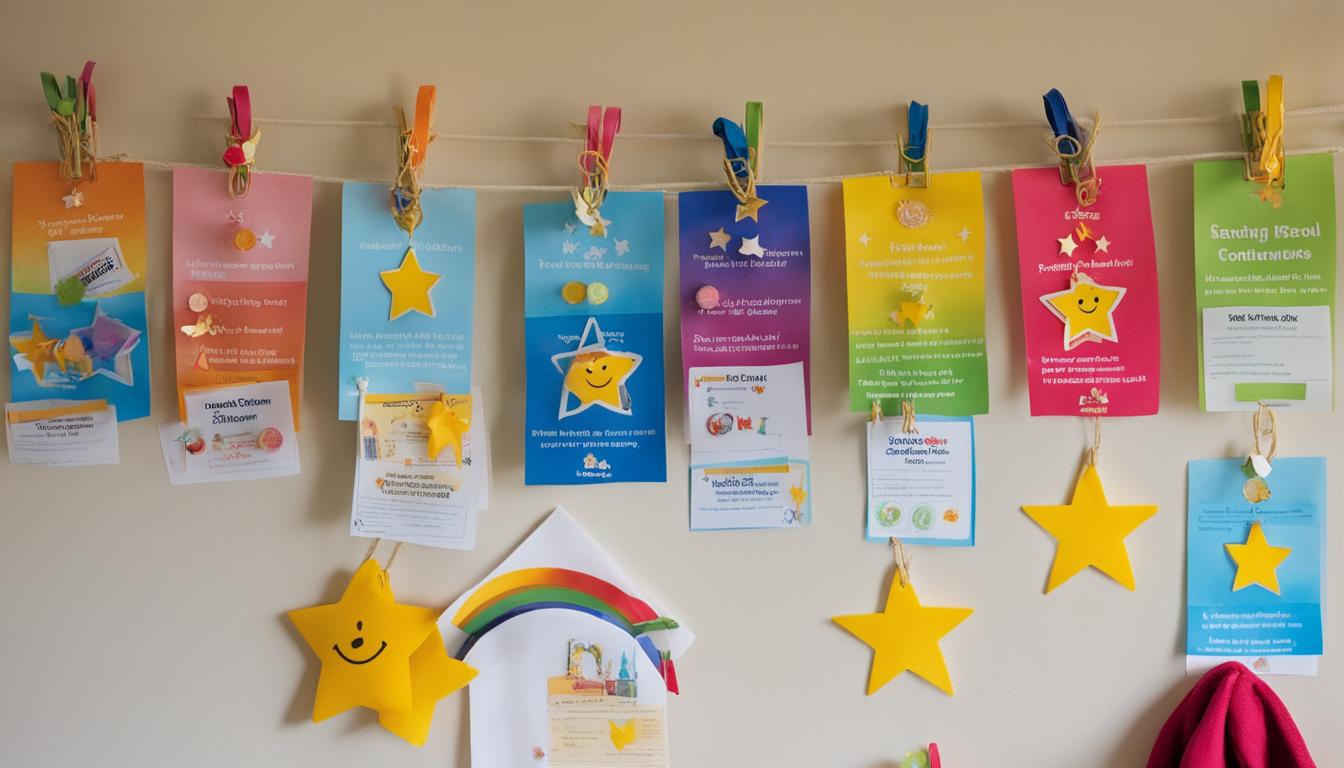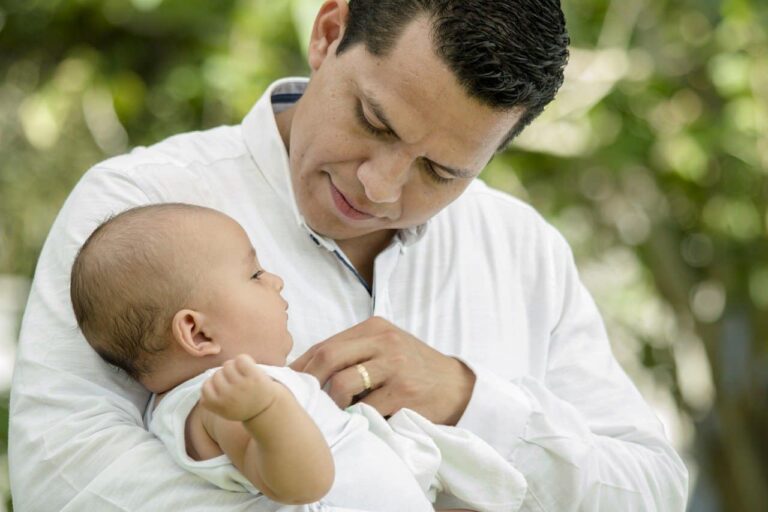Surprising Facts Only Child Families Can Relate To
Are you curious about the only child phenomenon or do you just need more stats? Whether you are an only child yourself, a parent of one, or just interested in the statistics behind family dynamics, you are in the right place. We’ll dive into the percentage of only children in different countries and explore whether being an only child affects success.
We’ll also discuss famous celebrities who grew up as an only children and examine if there really is such a thing as “only child syndrome.” Let’s get started in uncovering all aspects of being an only child and discover what makes for the happiest family size.
Only Child Percentage by Country
The percentage of single-child homes varies widely between countries. In some places, such as China, the one-child policy implemented in 1979 has resulted in a significant increase in the number of only children. As a result, around 20% of Chinese households have just one child.
In Japan, where there is no official policy but cultural and economic factors have influenced family size trends, around 30% of households are made up of only children. However, this figure will likely rise over time due to social pressures and rising living costs.
On the other hand, many Western countries tend to have lower percentages of only children. In North America (more so United States & Canada), roughly 10-15% percent of families consist solely of an only child.
It’s clear that cultural norms and government policies can play a major role in shaping family sizes across different nations.
Percentage Of Only Child Families in The US
In the United States, the percentage of only-child families has been increasing steadily over recent years. According to recent research statistics, around 20% of American families are one-child families. This is a sharp rise from a few decades ago when large families were more common.
There are several key reasons behind this shift in family size. One factor is that many couples are choosing to have children later in life and focusing on their careers before starting a family. Additionally, rising costs of living and education can make it exceedingly difficult for a number of families to afford multiple children.
While having an only child can come with its own unique set of challenges and pros, it’s important to recognize that every family is different and there is no single family size that fits all. Some parents may prefer having multiple children while others may thrive as parents of an only child.
The percentage of only-child families in the US reflects changing societal norms and values surrounding parenthood and family dynamics.
Are Only Children More Successful
There is an assumption that only children are more successful than those with younger siblings. However, this notion is not entirely accurate. While some studies suggest that only children may have higher academic achievement and career success, other factors also play a significant role.
Firstly, it’s essential to consider the family’s socio-economic status and parental involvement in their child’s education and development. A supportive environment can positively impact any child’s future prospects, regardless of their birth order or number of siblings.
Moreover, personality traits such as perseverance, self-motivation, and confidence also play an instrumental role in achieving success. These characteristics aren’t exclusive to only children; they can develop among individuals of any family size.
Additionally, one must acknowledge that each person has unique experiences that shape their path toward success. Generalizing based on whether someone is an only child or not ignores many complex variables present in individual circumstances.
While there may be some correlation between being an only child and higher levels of success in certain areas like academics or careers; it doesn’t necessarily mean that all singletons will achieve greater accomplishments than those with siblings.
Only Child Syndrome: Only Child Problems in Adulthood
Growing up as an only child comes with some perks, but it also attracts a unique set of challenges that can follow one into adulthood. “Only child syndrome” is a term coined to describe some of the problems and difficulties only children face in their adult lives.
One issue is difficulty sharing and compromising. As they grow older, only children may struggle when working in groups or collaborating since they are used to being independent. They might find themselves uncomfortable with teamwork and tend to be less flexible than others.
Another problem is the pressure placed on them by their parents. Often, parents have high expectations for their only child’s academic achievements, social skills, and career success, which can lead to anxiety or low self-esteem if these expectations aren’t met.
Furthermore, many people believe that growing up without siblings leads to poor socialization skills. Being an only child means missing out on learning how to share toys or play games cooperatively with siblings who are roughly the same age.
Loneliness can be another significant issue related to “only child syndrome.” Lack of siblings around during childhood years, adults raised alone tend not always feel comfortable socially at work events like team building activities where everyone else has known each other since college days.
It’s essential not just for individuals but for society as a whole; we should recognize the challenges faced by those lacking siblings – highlighting areas where support structures could be implemented so no one feels left behind due solely because of being an only child.
NB: However, we must acknowledge that the problems common with an only child can affect those in homes with many children. For instance, parents can still be extremely demanding. Loneliness can also be a problem for families where children have large age gaps.
Famous Only Children: Only Child Celebrities
Only children often gain a lot of attention from their parents, and some grow up to become famous. One such example is the former American President Franklin D. Roosevelt, who was an only child himself.
Another famous only child is actor Leonardo DiCaprio, who has many global acting awards for his performances in movies like Titanic and The Revenant.
The list of famous only children goes on with names like Natalie Portman, Tiger Woods and Robert De Niro. These individuals have been incredibly successful in their respective fields despite being raised without siblings.
While not everyone born as an only child will become a celebrity, it’s clear that growing up without siblings doesn’t necessarily hold you back from achieving greatness. It may even give you more opportunities to focus on your passions and develop your talents to the fullest extent possible.
A Deep Dive on Some FAQs About Only Child
What Is the Happiest Family Size?
Many people wonder what the ideal family size is for happiness. Studies have shown that there isn’t a one-size-fits-all answer to the above question. It generally varies from one person to another and from culture to culture.
In some cultures, having a large extended family living together brings happiness and provides support. In other cultures, having a small nuclear family is preferred.
Research has indicated that families with two children tend to be the happiest overall. This is likely because two children provide balance in terms of sibling relationships and parenting duties.
However, this doesn’t mean that families with only one child or more than two are not happy. Many parents report being very satisfied with their decision regardless of how many exceptional children they have.
Ultimately, the happiest family size depends on individual preferences and circumstances such as financial stability, cultural norms and personal beliefs about parenthood.
What Are the Odds of Being an Only Child?
The odds of being an only child vary depending on the country and culture. In China, for example, the one-child policy enforced from 1979 to 2015 resulted in a higher percentage of families with only one child. On the other hand, in some African countries where large families are more common, the likelihood of being an only child is lower.
In general, according to recent statistics from the US Census Bureau, about 1 in every 5 American families has just the first child. According to census data, this means that roughly 20% of children born in America do not have siblings.
There are some key aspects that can contribute to a family’s decision to have just one child. Some parents prioritize their careers or financial stability over having multiple children. Others may feel overwhelmed by parenting responsibilities and decide that they can provide better care for a single child.
Regardless of what leads to this trend towards smaller family sizes and more only children, studies show there are both pros and cons associated with growing up as a single child.
What Are the Traits/Characteristics of an Only Child?
Only children often have a unique set of characteristics that distinguish them from those who grew up with siblings. Because they didn’t have to compete for their parent’s attention, only children tend to be more self-sufficient and independent.
They also end up being more responsible and conscientious in many cases during adulthood since they were the sole focus of their parent’s expectations. As a result, only children may feel a greater sense of pressure to succeed in life.
On the other hand, only children may struggle with social skills since they didn’t grow up learning how to interact with siblings. They may feel more comfortable around adults or older peers rather than people their own age.
Furthermore, some studies suggest that only children are generally smarter than those who grew up with siblings. This could be because they received undivided attention from their parents during the intellectual development stages.
While there are drawbacks and pros associated with growing up as an only child, it’s important not to generalize about individuals based on birth order alone. Each person is unique regardless of whether or not they had siblings growing up. We can’t however overlook the probability of an only child exhibiting the above characteristics.
Is It Hard Being an Only Child?
It depends! Being an only child can have its advantages. However, it also comes with some key challenges. For one thing, only children do not have siblings to share the burden of family responsibilities and expectations with. This means that they may feel intense pressure to succeed academically or professionally in order to meet their parents’ high expectations.
On the contrary, being an only child can also bring forth feelings of loneliness and social isolation. Without siblings around to play with, only children may struggle to make close friends or build strong relationships later in life.
Additionally, as adults, only children may face difficulties when dealing with conflict or compromise since they are not used to negotiating with siblings. They might find themselves struggling in group settings where collaboration is essential.
Despite these challenges, many people who were once only children report feeling grateful for their own experiences growing up. It’s important for parents of singletons to be aware of the potential hardships their child may face and offer support whenever necessary – but ultimately each individual has their own path towards happiness and success regardless of their birth order.
How Being an Only Child Affects Relationships?
Being an only child can have its advantages and disadvantages. While some may experience loneliness or pressure to succeed from their parents, only children often have a close bond with their parents and may develop strong independence skills. Additionally, being an only child does not necessarily determine one’s success or happiness in life.
When it comes to relationships, only children may struggle with sharing and compromise since they are used to having things all to themselves. However, this isn’t 100% the case as many only children grow up learning how to navigate social situations and build strong relationships outside of their family unit.
Ultimately, whether someone is an only child or part of a larger family does not define them completely. Each person has unique experiences that shape who they are/become and how they interact. Understanding a significant difference like this can lead to greater empathy and connection in our relationships with others regardless of their birth order or family size. If you happen to be the only child in your family, you’ll have a better understanding of how to deal with issues linked to you birth order.
What are the Unique Traits of Parents of Only Child?
Parents of only children have unique traits that are often shaped by their parenting experience. Having an only child means that the parents have a singular focus on their child, which can result in them being more protective and involved in their child’s life compared to those with multiple children. They tend to be highly invested in their child’s education, social development, and emotional well-being.
Parents of only children may also experience mixed emotions about not having additional siblings for their child to play and interact with, leading them to provide more opportunities for socialization outside the home. Additionally, they may feel pressure from society or family members who expect them to have another child.
However, they also enjoy the benefits of being able to give undivided attention and resources to one child without worrying about dividing it among siblings. Overall, parents of only children possess unique traits borne out of this parenting style that ultimately shapes both parent and child experiences alike.
How Does an Only Child Cope with a New Sibling/s, Friends, and Others?
In homes with multiple children, sibling relationships often play a significant role in shaping the family dynamic. However, the presence of an only child can also have a unique impact. As the focus of their parent’s attention and resources, only children may experience both advantages and disadvantages when it comes to relating to others.
They may struggle with sharing with a new sibling as they are not accustomed to having to consider someone else’s needs or wants. On the other hand, they may develop stronger bonds with new sibling/s and friends as they seek out companionship and support that is not available from their parents alone. In either case, it’s critical for parents to foster healthy communication and respect among all their children in order to build positive sibling relationships that will last throughout their lives.
What Are the Top Pros & Cons of Small Families?
In homes with a second child, sibling relationships often play a significant role in shaping the family dynamic. However, the presence of an only child can also have a unique impact on these relationships. As the focus of their parent’s attention and resources, only children may experience both advantages and disadvantages when it comes to relating with others. They may struggle with sharing or compromising as they are not accustomed to having to consider someone else’s needs or wants.
Good news is, they may develop strong bonds with their others as they seek out companionship and support that is not available from their parents. In either case, parents with small families i.e., one child must be intentional about fostering healthy communication and respect. They should also build positive relationships with their only child as this lays a solid foundation for having lasting relationships throughout their lives.










